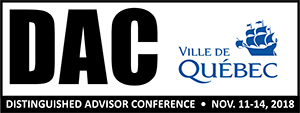Know Your Cross-Border Client: Avoiding Tax Consequences and Liabilities

Canada-US relations have been strained for a variety of reasons, but recently private business owners received what could be a very costly surprise. New guidelines outlined by the I.R.S. for the Transition/Repatriation Tax will take a toll on Canadians with U.S. or dual citizenship who have businesses incorporated in Canada: expect to owe even more tax.
These new guidelines associated with this tax will prevent these business owners from taking the full U.S. tax deduction available. Instead I.R.S. will only allow a portion to be used – which experts are saying is a violation of the Canada/U.S. treaty that prevents double taxation.
In light of this, tax and financial advisors with clients who have ties to the U.S. need to be more diligent than ever in order to avoid tax and legal consequences associated with this tax. Also, be sure to address previous tax payment deadlines, moved to April 15, 2019, as we reported in previous coverage of this issue.
Dean Smith of Cadesky Tax in Toronto discussed these important cross-border taxation issues at the Knowledge Bureau’s May CE Summits, and will embellish on them further at this year’s Distinguished Advisor Conference, providing tax and financial advisors with the necessary strategic outlook for timely Canada/U.S. issues in a session entitled “Know Your Dual-Resident Client: How to Avoid Legal Liability with U.S. Persons.” Be sure to register at early registration rates by September 15.
Addressing why this is so essential, Dean Smith says: “As part of getting to know your client (KYC), one of the questions that you must ask is what their U.S. status is, if any. However, that query alone is not enough to keep you out of legal liability: many clients who are U.S. citizens, lawful permanent residents (i.e., green card holders), or U.S. residents in general, may not know what their specific, legal U.S. status is; nor will they understand their tax filing obligations with respect to off-shore assets.”
Dean further states, “Unfortunately, tried and true Canadian planning techniques do not work for your clients with ties or interests south of the border. You may not be holding the right assets in your clients’ various investment accounts and, therefore, even worse, planning your client into a quagmire of unanticipated tax and reporting issues.”
Knowledge Bureau is pleased would like to thank our DAC partner, Cadesky Tax, for their support of this year’s event. And in particular, Dean Smith for his ongoing work in providing the latest in vital professional development to Knowledge Bureau students taking both online and peer-to-peer learning opportunities. Interested in partnership opportunities? Learn more.
This year’s theme at DAC is The Changing Face of Community – Collaboration with Impact Impact is covered by twenty industry thought leaders, including Dr. Jack Mintz; Dr. Michael Geist; IIAC President Ian Russell; IFB Director Susan Allemang; tax Specialists Dean Smith, Kim Moody and Evelyn Jacks; ivari’s Chief Underwriter, Helene Chatelain; and immigration lawyer Shoshana Green. Pre-eminent special guest hosts, panel discussions, Franklin Templeton’s Lunch and Learn More About Hedge Funds and the famous (and fun) DAC Networking Experience all provide you with a memorable educational experience. Advisors will earn CE/CPD credits from CECAP, Knowledge Bureau and Insurance Councils; plus certification achieved is recognized by most professional organizations for CE/CPD credits. Read more: View agenda.
Additional educational resources:
To learn more about cross-border tax issues, in addition to attending the Distinguished Advisor Conference in Quebec City this November, we invite you to:
-
Learn more about how to manage cross-border taxation issues with Knowledge Bureau’s certificate course. A free trial is available.
-
Pick up your copy of the Knowledge Journal, an essential tax resource for addressing complex issues on both sides of the border.
COPYRIGHT OWNED BY KNOWLEDGE BUREAU INC., 2018.
UNAUTHORIZED REPRODUCTION, IN WHOLE OR IN PART, IS PROHIBITED.
 |
 |
 |
 |
|
Refer a Friend |
Research |
Calculators |
Course Trials |
 |
 |
 |
 |